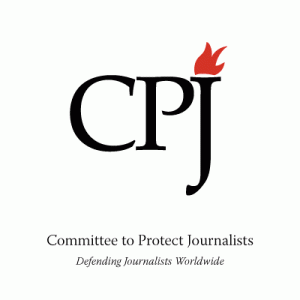To illustrate how public sector corruption impacts on different issues, such as development and freedom of expression, we asked our friends at other organisations to let us know how public sector corruption affecting the areas that they work on. We hope you’ll join in the discussions on the multi-dimensional effects of corruption and, most importantly, how we can work together to overcome this global disease. The following post has been written by Gypsy Guillén Kaiser, Advocacy and Communications Director at the Committee to Protect Journalists (CPJ), a New York-based, independent, nonprofit organisation that works to safeguard press freedom worldwide.
 It happened one day, after many direct warnings. Neighbours found Mikhail Beketov, editor of Russia’s Khimkinskaya Pravda, in a pool of blood. He was left to die in the cold after a savage beating that ended with broken legs, smashed hands and a cracked skull. Although with severe brain damage and unable to speak, he survived and is recovering.
It happened one day, after many direct warnings. Neighbours found Mikhail Beketov, editor of Russia’s Khimkinskaya Pravda, in a pool of blood. He was left to die in the cold after a savage beating that ended with broken legs, smashed hands and a cracked skull. Although with severe brain damage and unable to speak, he survived and is recovering.
When the attack happened, Beketov had been reporting on the proposed construction of a highway in Khimki, outside Moscow, which would have destroyed a local forest. His stories pointed to dubious land deals and implicated local officials. Two years later, a probe into the attack has been suspended, with no suspects in custody. A defamation case against Beketov, brought by Khimki’s mayor, is currently proceeding.
The brutality employed to silence Beketov is extreme but attacks against journalists who expose corruption or allegations of this crime, are a common reality in many corners of the world. Research by the Committee to Protect Journalists (CPJ) shows that from 837 journalists killed since 1992, 21 per cent were reporting on corruption.
But corruption limits press freedom in other ways too. Fears of reprisals or the financial disadvantages such reporting may bring induce self-censorship. Some governments abuse their authority to award lucrative official advertising contracts to reward or punish media outlets.
Special interest or criminal groups engaged in corruption try to control the press –sometimes by force- as is currently the case in Mexico. And in a rather vicious circle, bribes and influence-peddling play a role in the enduring impunity that leaves attacks on journalists like Beketov, largely, unresolved. In the last 18 years, 27 per cent of the 538 cases of unresolved journalist murders, involved reporting on corruption.
This complex scenario of control and intimidation is documented, for example, in our recent report on the wave of violence wracking Mexican media. More than 30 journalists have been murdered or gone missing since December 2006.
In the 80’s and 90’s, Mexico’s drug cartels invested in buying the cooperation of corrupt police, public officials, soldiers, and customs agents, the report states. If a journalist exposed and disrupted this network, it reduced bountiful illicit profits. Assessing the current situation, CPJ Executive Director Joel Simon writes: ”Traffickers rely on media outlets they control to discredit their rivals, expose corrupt officials working for competing cartels, defend themselves against government allegations, and influence public opinion.“
Yet in the midst of all this, there is reason for hope. Recent CPJ meetings with Russian officials and Mexico’s President have resulted in the reopening of investigations and a pledge to push for legislation that would make the killing of journalists a federal crime. In August, CPJ representatives also met with officials in the Philippines who signalled they will continue their robust investigations into the Maguindanao massacre, where 32 of the 57 people ambushed by a militia were journalists.
It is also heartening to see journalists like Pakistan’s Umar Cheema, who was recently abducted, tortured and released, continue to speak out about his suspicions that the Pakistani secret service simply resented his reporting on the army and the government, including possible corruption. But this is just one example. Journalists the world over will continue to use and test access to information laws, confirm public claims and probe programs, decisions and deals that affect the public. In that process, they will undoubtedly continue to uncover corruption, and to pay a price for it.















 Connect with us on Facebook
Connect with us on Facebook Follow us on Twitter
Follow us on Twitter